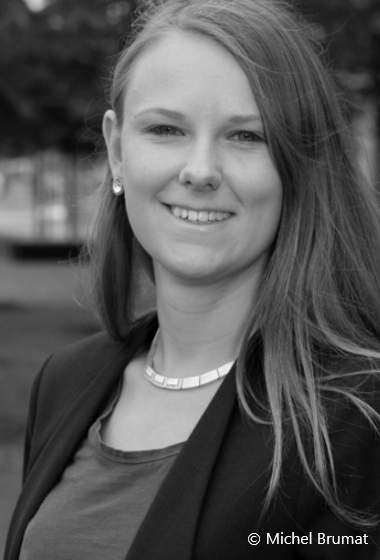In conversation with our young researchers: Dr Jennifer Dusdal
06 May 2021
Home to nearly 2,000 public researchers, Luxembourg has created a thriving research and innovation scene, fostering collaboration. When starting a research career, finding a destination which encourages teamwork and interdisciplinarity, in particular, is everything.
Postdoc Dr Jennifer Dusdal, a social scientist at the University of Luxembourg, is one of our young researchers who is conducting her research projects in Luxembourg.
Interdisciplinarity as a powerful driver to research excellence
Today, millions of researchers worldwide collaborate across organisational, disciplinary, and cultural boundaries, extending the possibilities of new scientific discovery. This, and the associated data, has paved the way for the scientific field Science of Science, where one key question is understanding exactly how scientific quality is fostered by research collaboration.
According to Dr Jennifer Dusdal, who’s exploring the scientific field Science of Science, “contemporary science is marked by a powerful shift towards increased creation and dissemination of new scientific knowledge beyond the scientific community. A timely and important development that is likely to involve researchers, policy makers in ministries for higher education and research, university/research institute managers, and funding agencies.”
An increasing amount of research questions cannot be answered by researchers from just one scientific discipline – collaboration is key in scientific research. Thanks to all the data available on research collaboration output, social scientists are now increasingly able to look at the big picture and ask a range of questions with the goal of understanding the mechanisms of what makes science excellent.
One of the biggest challenges in the field of Science of Science, Jennifer explains, is the advancement of cross-disciplinary methods to analyse different types of data, as well as addressing theoretical problems to allow for a deeper understanding of the relational structures and drivers of scientific research. Addressing these challenges will open the door to providing in-depth insights into the fundamental, but complex mechanisms behind scientific discovery.
Why Luxembourg as a research destination?
To Sofie Waltl, “working in such a multi-disciplinary research setting is very fruitful.”

“It was an unexpected opportunity for me to join the University of Luxembourg. I am a sociologist of science who is inquisitive about science capacity-building and the development of diverse higher education and science systems. Working in a young, vibrant, expanding, and globalised research environment enables me to observe its institutionalisation and related negotiation processes at different levels in real time.
Excellent research conditions, a strong team, opportunities to meet curious colleagues from different fields, and support to develop my academic career makes Luxembourg the perfect place for my research.”
Jennifer Dusdal, Postdoc Researcher, Department of Social Sciences, University of Luxembourg
Find out more about Science of Science in the Spotlight
Read more about the Faculty of Humanities, Education and Social Sciences of University of Luxembourg.
Extracts from Spotlight on Young Researchers: How is scientific quality fostered by research collaboration?








